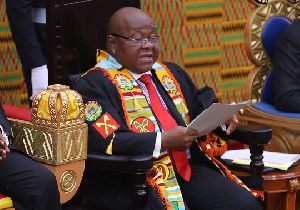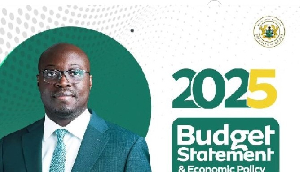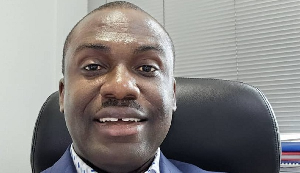In recent days, the re-emergence of the "Agyapadie" document in Ghana has stirred controversy. I have read the document, and I have since been reminded of the infamous Protocols of the Elders of Zion."
While the contexts, settings, characters, and historical backgrounds differ significantly, there are notable similarities in the content and underlying intent of both documents.
The Agyapadie document appears to be a blueprint for state capture, with several of its alleged objectives seemingly achieved by the current government. It may also just be a mere coincidence; it may be a calculated effort by others to make the government unpopular, or it may indeed be a calculated effort, elaborate scheming, and plotting by the government to capture the state.
The Protocols of the Elders of Zion—what is it? The "Protocols of the Elders of Zion" is a notorious antisemitic text that emerged in the early 20th century, purportedly a secret plan by Jewish leaders to dominate the world. The Protocols outline a supposed Jewish conspiracy to control global finance, media, and politics, aiming for world dominance. The text is structured as a series of secret meetings where the "Elders" discuss their plans to subvert governments, manipulate economies, and control public opinion. It is said that the document was later exposed as a hoax. Nevertheless, it has had a long-lasting impact, fueling conspiracy theories and anti-Jewish sentiment across the globe.
The "Agyapadie" document, which is in circulation and a subject that has sparked heated discussions in the last few days and weeks, has been described as a strategy for achieving political dominance and control over key state institutions. Like the Protocols, the Agyapadie document outlines a series of steps that, if followed, would lead to significant influence over the nation's political and economic landscape.
One of the central themes in both the Protocols and the Agyapadie document is the emphasis on controlling the media to shape public opinion. The Agyapadie document allegedly advises its characters to infiltrate and dominate media houses, ensuring that the narrative presented to the public is favorable to their cause. This strategy mirrors the Protocols' focus on using media as a tool to manipulate the masses. In recent years, there have been concerns about media freedom in Ghana. Some observers believe that this could be a manifestation of the Agyapadie strategy, with the aim of silencing dissenting voices and controlling the flow of information.
Also, both documents advocate for the infiltration of key institutions, including the judiciary, law enforcement, and the military. The Agyapadie document outlines a plan to place loyalists in strategic positions within these institutions, ensuring that they can influence decisions in favor of their agenda.
In Ghana, there have been allegations of political interference in the judiciary and other state institutions. Critics argue that this is part of a broader strategy to consolidate power and undermine the checks and balances that are essential for a functioning democracy.
The Protocols emphasize the importance of economic control as a means of gaining political power. Similarly, the Agyapadie document is said to advocate for the control of key sectors of the economy, particularly those that are critical to national development, such as banking, energy, and natural resources.
Some analysts point to recent developments in Ghana's economy, where certain industries appear to be dominated by individuals or companies with close ties to the government. This has raised concerns about cronyism and the potential for economic power to be concentrated in the hands of a few, leading to greater political influence and control.
Both documents discuss strategies for undermining political opponents, either by discrediting them, creating divisions within their ranks, or using state resources to weaken their influence. The Agyapadie document allegedly advises its characters to use state institutions to harass and intimidate opposition figures, a tactic that has been observed in various forms in recent years.
Let's quickly discuss the issue of state capture. Is it a reality in Ghana? State capture refers to the process by which powerful individuals or groups manipulate state institutions, policies, and resources to serve their own interests, often at the expense of the public.
The Agyapadie document has the potential to put people who wish to capture and own the state several steps ahead. It is a clear and, honestly, impressive blueprint for state capture in Ghana. While the "Agyapadie" document has not been independently verified, the similarities between its alleged content and that of the "Protocols of the Elders of Zion" are striking. Both documents outline strategies for gaining and maintaining power through the control of media, institutions, and the economy while undermining opponents.
As there are growing concerns that elements of the Agyapadie agenda are being implemented, leading to a gradual erosion of democratic principles and the concentration of power in the hands of a few, all efforts must be geared towards salvaging the situation. This is a threat to the nation's democracy and the rights and freedoms of its citizens. As such, it is crucial for civil society, the Fourth Estate, and the international community to remain vigilant and seek accountability. This is a sure way to safeguard the future of Ghana, irrespective of our political interests and colors. Whether the government has anything to do with this document, time will tell.
Opinions of Friday, 2 August 2024
Columnist: Dumenu Charles Selorm









![Isaac Kwadwo Ampong [L] and President John Mahama Isaac Kwadwo Ampong [L] and President John Mahama](https://cdn.ghanaweb.com/imagelib/pics/549/54996138.295.jpg)





